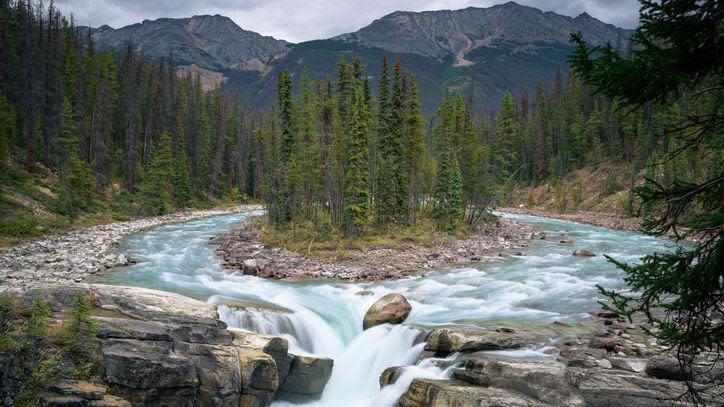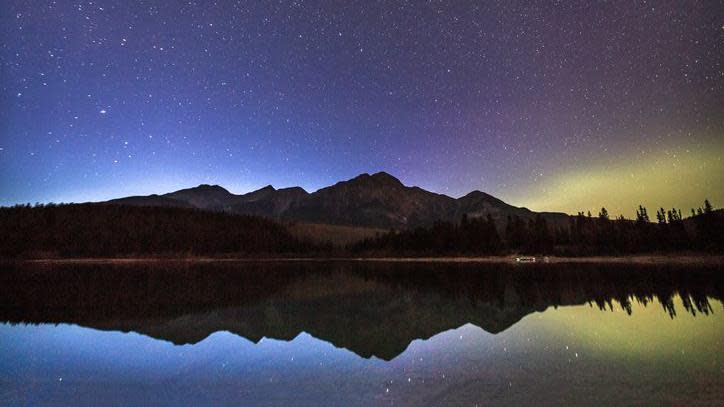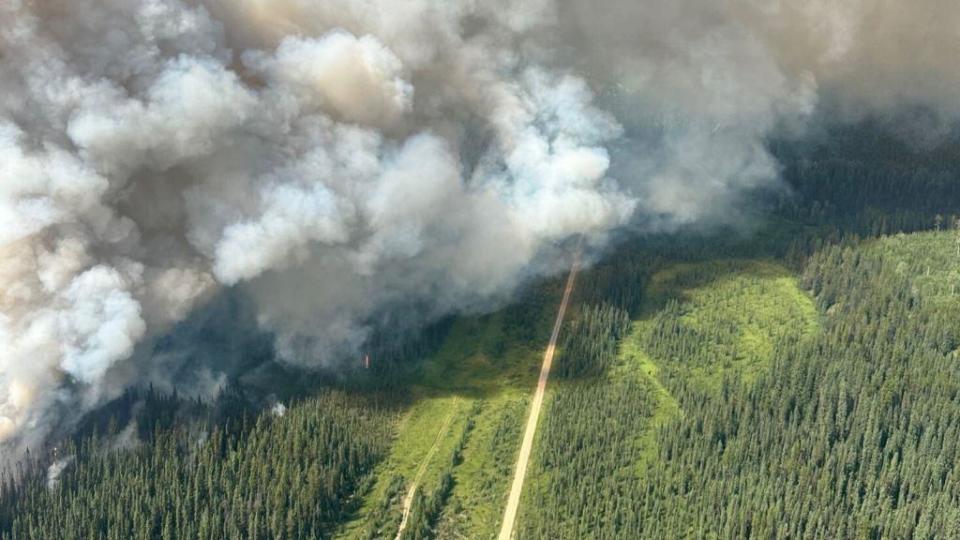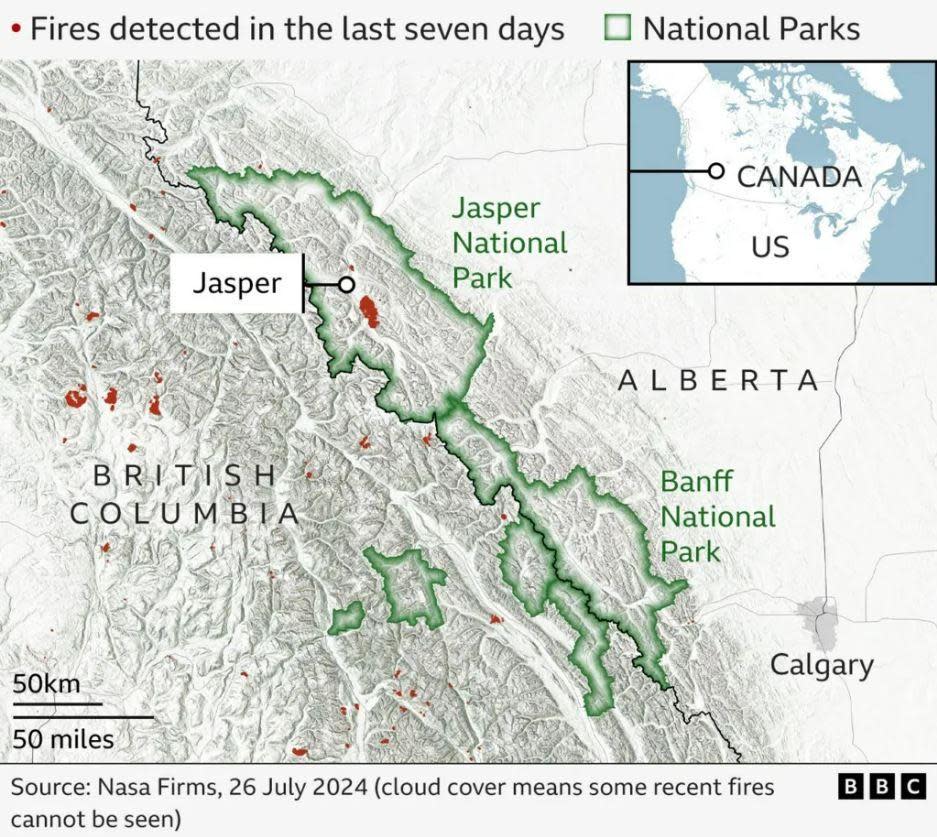Tears welled up in Tasha Porttin's eyes as she recalled the sheer beauty of the place she has lived for 10 years.
Jasper’s mountain peaks and the beautiful pine trees that frame vibrant baby-blue lakes make it a popular tourist destination, drawing millions of people each year. The natural beauty and small businesses, like the pharmacy she started, make the quaint mountain town in the Canadian province of Alberta a jewel of the country.
It is “a place with the biggest heart of any community I’ve ever met,” she said through tears. “It grabs people and never lets them go.”
Those memories have now been replaced by a developing nightmare. An out-of-control fire has destroyed about 33% of the buildings in the Canadian Rockies resort town, and firefighters are still working to douse the flames that have already burned 89,000 acres (36,000 hectares).


Rain doused the fire Thursday night and no new fires broke out over the past day, officials said in an update Friday. But winds were expected to pick up and warm, dry weather was expected to return Monday.
According to Jasper city officials, a total of 1,113 structures have been destroyed, of which 358 have been destroyed. It could be weeks before residents can return home.
But “all critical infrastructure in Jasper was successfully protected” – including schools, a hospital and a water treatment plant.
Jasper Mayor Richard Ireland said his own home may have been destroyed by the fire. “Where the fire has done the most damage is my house.”
“How I will react remains to be seen.”
The mayor said that despite preparations and years of training, the nature of the fire “humbled the people on the ground.”
He added that “nature triumphed” with 100-metre high walls of flames that were metres wide.
Mrs Porttin fled the area in a camper her husband bought less than a month ago, watching the fire and waiting anxiously as nearby buildings collapsed.
“I've seen pictures of it,” she said of her business. “Unfortunately, the buildings next door don't. That's about all I know.”
“It's surreal to think that our city center is no longer as we left it.”
Canadians and elected officials have reported a deep sense of grief and devastating cultural loss as the area continues to burn.
Jasper National Park is located just north of the more popular Banff National Park and is the largest national park in Canada's Rocky Mountains.
The UNESCO World Heritage site is home to elk, grizzly bears, moose and bison.
The adjacent town of Jasper has about 5,000 residents, but has about a dozen hotels to accommodate the approximately 2.5 million people who visit the park.
Prime Minister Justin Trudeau called the area a “special and cherished place” for many Canadians.
Karyn Decore, whose family has owned the historic Maligne Lodge for more than 60 years, has received condolences from across the country since learning the lodge was destroyed in the fire that tore through town.
In an interview on Friday, she said she always enjoyed sharing this Canadian “icon” with international visitors, calling it “one of the most famous national parks in the world.”
“People understand the beauty, the power and the magic of Jasper National Park,” she says, reflecting on her life of wildlife watching, mountain biking, fishing and skiing in Jasper.




Ms. Porttin said she loves seeing visitors fall in love with Jasper, and most of those who eventually move to the town have a similarly resounding origin story.
“Most people say I came for one summer and stayed for the rest of my life,” she says. “It grabs people and never lets them go.”
According to her, the city's residents enjoy meeting people from all over the world who come here and “fall in love with the place we love.”
Mrs Porttin said she wanted to get away quickly as the fire got closer. She said the recently purchased camper van was already filled with some essentials.
“Without that,” she said, “I don't know what we would have done.”
Together with her four-year-old child, she had only 30 minutes to pack on Monday.
Her husband was gone, so a friend came along who had a truck, and he hitched the trailer to the truck so they could all get away.
The two families camped together for two nights before her husband was able to join them.
“Even though you think you're prepared, you're never ready to leave,” she said.
The devastation is expected to have high economic costs as tourists stay away during the peak season.
Ms Decore says her now-devastated hotel is normally 100% occupied from May to October each year. Now all tourists and staff have evacuated the area and don't know when they will be able to return.
Park officials estimate that a two-week power outage in the city last year cost local businesses about $10 million in lost revenue.
It remains to be seen how long it will take to restore the resort and the pristine ecology that makes the majestic park a pride of Canada.
Meanwhile, 51 wildfires are currently burning “out of control” in the province of Alberta, displacing approximately 17,000 Albertans.


![]()

